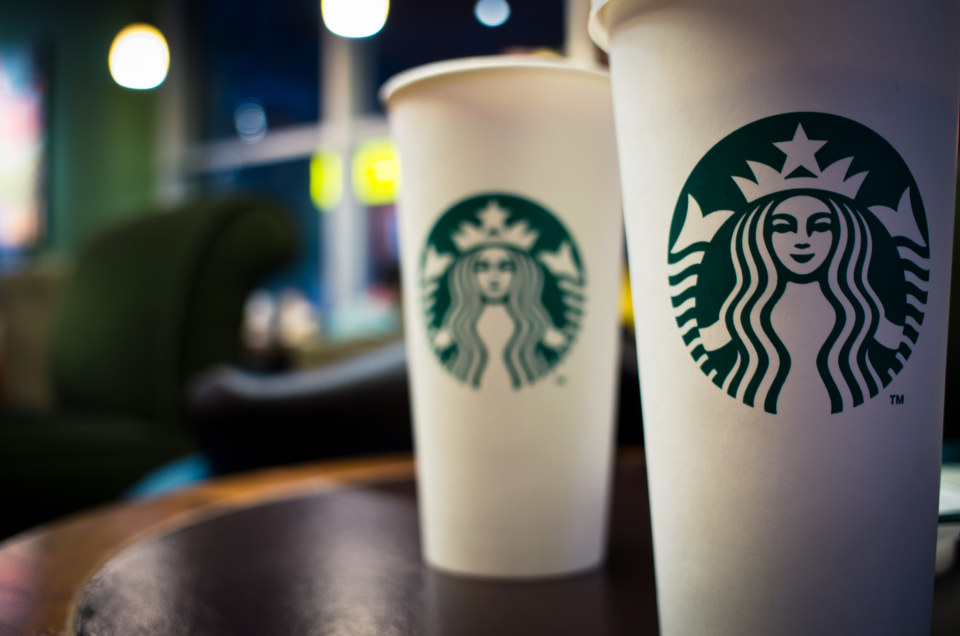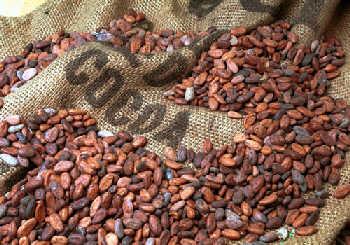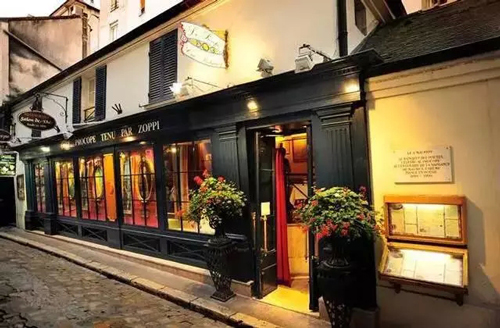Can coffee chain giant Starbucks continue to dominate the world in the future?

In the 1960s, some large coffee producers in the United States reduced the magical coffee drink to a common thing with large-scale production. In order to continuously reduce costs, the quality of the product was reduced again and again. A glamorous industry almost lost its life. Fortunately, a beautiful mermaid-Siren Banshee in the coffee industry chaos downturn, singing moving songs, cups of fragrant coffee brought to the world before. It restored dignity to coffee, warmth to toiling people and, for a time, irresistible charm-Starbucks, the siren the world loved and hated for nearly half a century.
Starbucks emerged from the general downturn in the U.S. coffee industry, creating an irresistible aroma and an amazing rate of chain expansion. Schultz is ambitious to expand Starbucks stores to 40,000 stores around the world, from innovation in coffee products to continuous innovation in business models and competitive models.
Starbucks
Starbucks is perhaps best known for Howard Schultz's autobiography, compared with Starbucks: The Legend of Coffee, Business and Culture deeply explores the Starbucks legend, removing the mysterious atmosphere of Schultz, less sensational and more interesting, less ideas and more wake-up thoughts, and tries to reveal from a rational and objective point of view how Starbucks has subtly changed the commercial ecology and cultural ecology of cities in the process of expanding its territory, the impact of Starbucks 'rise on the lives of coffee growers in the third world, and the hidden development injuries under the appearance of Starbucks Dynasty's strong expansion. Cultural injury. Schultz is no longer the gentle, career-minded gentleman described by the author of this book, but the ambitious, aggressive, and manipulative business leader. Schultz's character determines Starbucks 'character, and Shu's style determines Starbucks' core team's style.
Starbucks 'founding three leaders' cultivation and unique style made customers enjoy a noble and elegant experience, and laid a solid foundation for Starbucks 'rapid development in Schultz's hands in the future; Schultz was different from the other three founders. He was an outstanding businessman with the ability to confuse people. I believe that even if he did not enter Starbucks in the karma, he would also set off a storm in other industries.
If the aspect ratio is right, Schultz's scheming is no less than IKEA emperor Kamprad, and his tough style is no less than Apple leader Jobs. Unfortunately, he lacks a strategic vision for Starbucks 'long-term development. Starbucks' gold-lettered signboard is gathering dust in the process of accelerating global expansion. Starbucks is now closer to McDonald's in people's minds, but it is an expensive fast food beverage that can no longer surprise customers or provide customers with a unique "third space" experience. Its irreplaceability is gradually disappearing. Starbucks 'power has expanded to the whole world, which can only be said to be Schultz and Schultz.
Opening another Starbucks less than fifteen yards across the street was a crazy idea that only Schultz could conceive of, and only he enjoyed. Shu built the two stores into stores with different styles and different customer groups, becoming a unique commercial landscape. This seemingly irrational and self-competitive approach has not only not become a joke in the industry, but has become Starbucks 'unique magic weapon to besiege competitors and not give them any living space.
Starbucks is a nightmare for other coffee chains. Starbucks has a strong real estate department, sensitive sense of smell, quick response, always find the best core position in a strange city, carefully arranged troops, quick attack, do not give competitors time and space to breathe. When suppressing competitors, Starbucks will entice homeowners to stop renting to competitors through high rents at no cost, or simply surround competitors with Starbucks stores so that they can only quit, or even buy shares in competitors and replace them with Starbucks signs.
There are two sides to everything. While some coffee chains regard Starbucks as a scourge, some family coffee houses welcome Starbucks warmly: even following Starbucks to welcome customers looking for different consumer experiences is enough to make these small factories 'revenue soar. I can only wish these small factories luck. As long as they are small enough and do not grow and expand, they may be able to operate smoothly in the shadow of Starbucks, but they must not let Starbucks suspect anything.
The economic phenomenon is complex, powerful Starbucks, and wherever it goes, it stirs up a chain reaction in the business ecology of a region. A small catering, leisure and entertainment circle can be quickly formed around it, and the house price rises steadily, further promoting the government to renovate and upgrade the surrounding environment, thus attracting more enterprises and merchants to settle in. This Starbucks effect is gradually diminishing due to Starbucks 'own problems, but it has caused a series of cultural chain reactions. Drinking coffee has become the way of life and communication of the younger generation, and traditional food culture customs and social culture customs have been broken on a large scale. In some areas, anti-Starbucks slogans have even been put up to protect local culture from erosion.
In the economic world, there is no right or wrong, only win or lose. The strong have the power to formulate economic rules and product pricing rights worldwide, and at the same time it will produce cultural by-products, which form cultural exports through commodities. Starbucks 'products are losing their characteristics, but they can still become food fashion. It can only be said that Starbucks was born in fact. In an era when it flaunts taste but does not produce real taste, it is the inevitable outcome of rough reshaping of group thinking in the social environment. The world culture is converging on one side, whether it is Starbucks 'fault or not, and it cannot be concluded in one sentence. If a region's cultural ecology is so fragile, it will eventually lose its vitality in a globalized world. If a city doesn't have a soul of its own, blaming Starbucks doesn't make any sense.
American sociologist George Rizell in a second edition of Hamburg Rules the World?! The McDonalds fast food model describes the horror of the world, regardless of industrial workers, customers and products, all in a standardized process, under precise calculation and control, everything can be predicted. Starbucks reserves symbolic options for customers, but these options are only recombinations of quantitative criteria. Starbucks today is the same as McDonald's. Its waiters can take up their posts through simple training. They are no longer baristas with different understandings of coffee and can make drinks with life and emotion. Who can expect quality and taste at Starbucks again? Comfort the soul?
In modern society, simplicity equals efficiency, standardization, scale and low cost, high income have a direct conversion relationship, and product batch replicability paves the way for global expansion of enterprises. Under this general trend, this book leaves the world with three myths: Can Starbucks continue to dominate the world? Is there a way to reconcile noble persistence with vulgar commercial competition? Should multinational corporations, which are doing business, take more moral responsibility for this chaotic world?
Source: Shanghai Securities News Reporter/Hu Yanli
Important Notice :
前街咖啡 FrontStreet Coffee has moved to new addredd:
FrontStreet Coffee Address: 315,Donghua East Road,GuangZhou
Tel:020 38364473
- Prev

How much coffee beans should be used in a coffee shop?
Cafes saving dozens of dollars on coffee beans will not really save your coffee shop costs and bring higher turnover, but will make your coffee shop more and more deviate from the direction of the coffee shop. I know a bean seller who can supply 50-100 yuan / lb coffee beans. But he doesn't like selling coffee beans too cheaply for many reasons, especially
- Next

Do you know what the oldest cafe in the world looks like?
When it comes to the origin of coffee, it seems to be a long and old story. When coffee comes into our lives, it also shows that we have accepted a new way of life. Do you know what the oldest cafes in the world look like? 1.Le Procope the first coffee shop in Paris was born in 1686 Cafe age: 329 years old Le Procope opened in 1686
Related
- Can lightly roasted coffee beans be used to extract espresso? How finely should you grind high-quality coffee beans to make Italian latte?
- What is the difference between the world's top rose summer coffee and Yejia Shefi? What are the flavor characteristics of Yega Shefi coffee and Panama rose summer?
- The ceremony is full! Starbucks starts to cut the ribbon at a complimentary coffee station?!
- A whole Michelin meal?! Lucky launches the new "Small Butter Apple Crispy Latte"
- Three tips for adjusting espresso on rainy days! Quickly find the right water temperature, powder, and grinding ratio for espresso!
- How much hot water does it take to brew hanging ear coffee? How does it taste best? Can hot water from the water dispenser be used to make ear drip coffee?
- What grade does Jamaica Blue Mountain No. 1 coffee belong to and how to drink it better? What is the highest grade of Blue Mountain coffee for coffee aristocrats?
- What are the flavor characteristics of the world-famous coffee Blue Mountain No. 1 Golden Mantelin? What are the characteristics of deep-roasted bitter coffee?
- Can I make coffee a second time in an Italian hand-brewed mocha pot? Why can't coffee be brewed several times like tea leaves?
- Hand-brewed coffee flows with a knife and a tornado. How to brew it? What is the proportion of grinding water and water temperature divided into?

